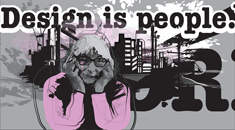LOG IN








CHALLENGE
Changing existing legislation which obstructs clean energy transition by mobilising & unifying legislation-focused entities and individuals. Tasked to analyse current legislation limitations and design new legislation that facilitates clean-energy market implementation, utilising the active strategies of WasteComplete & Energy Eminence as the demonstrative models.
This forum is focused to unify the legal acumen of multiple participants to enable new collaboratively developed legislation & policies, that may be direct applied by the existing governance structures of nation states.
Algae Ethanol E100 production facilitation
Eliminate the forced refining of ethanol with oil [market control ]
Legalised Direct Consumer Ethanol Sales
Small-scale Hydrogen Tech Commercailisation
Facilitation
Direct to Consumer
Bio-Hydrogen Fuel Sales
Micro-grid decentralised facilitated energy distribution
Bio-fuel Engine Manufacturing Law and Engine Conversions






Legislation that transitions the elimination of dirty industry
Legislation to facilitate and subsidise urban rooftop gardens
Trade constructs for competitive organic compost market pricing
Legislation for comprehensive sorting of 100% of generated waste
Extended Producer Responsibility packaging laws
Legislation that limit bio-fuels which inflict new ecosystem harm
***
Add legislative or trade issues
contributors







join in
join in
news










profiles of obstacles to change

























Legalised Direct Consumer Ethanol Sales







join in
contributors



sponsors - facilitators - ambassadors
CHALLENGE
Legislative support for pure ethanol, known as E100, enabled for direct dispensing and decentralised sales to consumers, is required. Brazil is a good example of legal E100 sales but the majority of countries support legislation which prohibits the direct sale of ethanol to the consumer as vehicle fuel, in the interests of traditional energy supply companies who dominate the market.
Current legislation often requires that ethanol is re-directed to oil refineries for a refining process that combines Ethanol with Oil, thus determining an environment where the oil refineries control the market price, market supply and distribution of Ethanol; including it's often limited availability at the fuel pump and it's forced internalisation within a big business model that decentralisation of this commodity challenges.
New technology enables bio-fuel production from renewable sources such as Algae or bio-slurry. This technology allows localized, small-scale manufacturing of bio-fuel and the subseqent capability for small business to directly dispense
bio-fuel to the consumer. Legislation which enables such small-scale business and processing constructs will decentralise market control and empower localised fuel supply. This creates the opportunity to stablise fuel supply, decrease fuel prices, increase local jobs and business innovation and facilitate clean-energy self sufficiency.
WasteComplete utilises technology to process bio-fuel from algae, bio-slurry and waste, that unlike supply derived from crops such as corn, they do not contaminate local agriculture eco-systems with pesticides, nor promote adverse procurement of valuable land, that should remain as it has been traditionally utilised, to ensure good quality agriculture practise and essential food supply.
WasteComplete and Energy Eminence include bio-fuel produced ethanol, isobutenol & low sulphur bio-diesel, within a commercialisation model that makes facilitates consumer access to one of the world’s most immediately realistic tools to fight air pollution from vehicles. These bio-fuels can improve overall environmental quality, compared to gasoline and can eliminate the use of environmentally harmful extraction supply models such as oil. In addition to bio-fuel's reductions in greenhouse gas & tailpipe emissions; ethanol is non-toxic, water soluble & quickly biodegradable. Ethanol use can reduce carbon dioxide (CO2) emissions from the use of gasoline cars in cites, by 30-50%. Ethanol’s performance reputation has been advanced by the Indie Car Series complete conversion to Ethanol as a higher performance fuel in preference to fossil fuels, with compatible engines.
Whilst the technology exists for commercialisation models like WasteComplete and Energy Eminence to transform existing cities to clean energy; current legislation in many countries prohibit or obstruct the transition to and profitability of, the installation of such operational clean energy self sufficiency models.
We need to change this.



current legislation
Active entities
lobbying change
file
file
file
obstacles to change
logo
logo
logo
individual
name
individuals relevant
individuals name



profile
profile
profile
legislative location
city
state
country
sponsor. ambassador.







Entity
Entity
Entity
individual
name
individual
name
individual
name

















